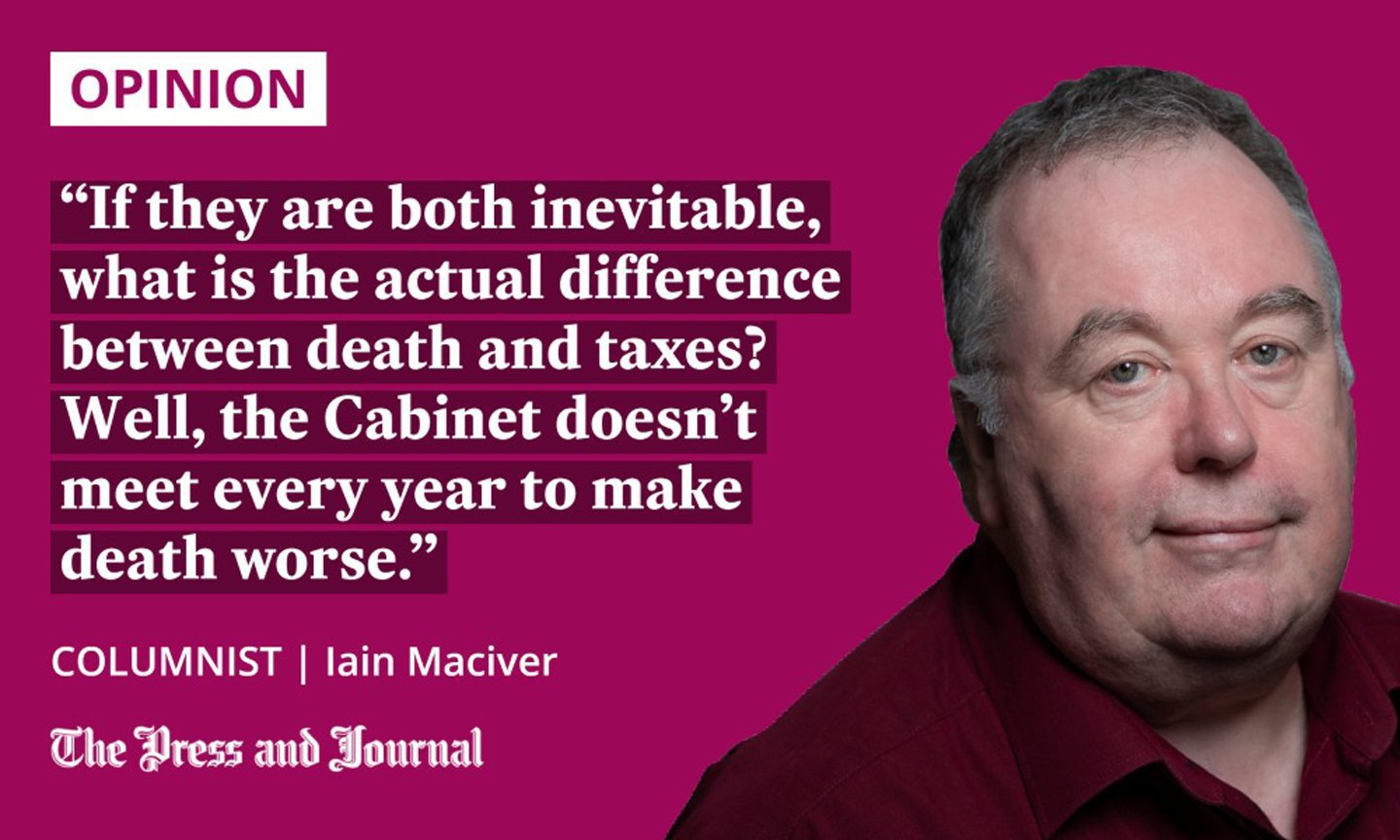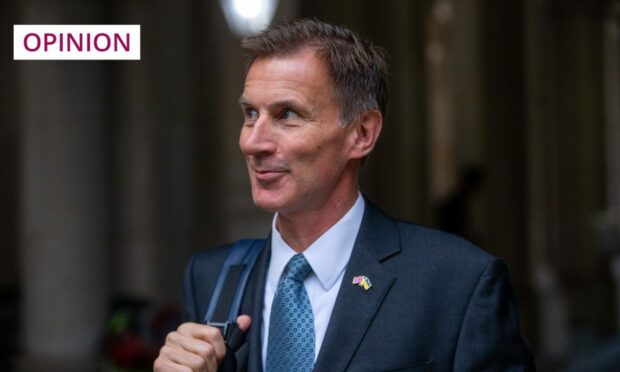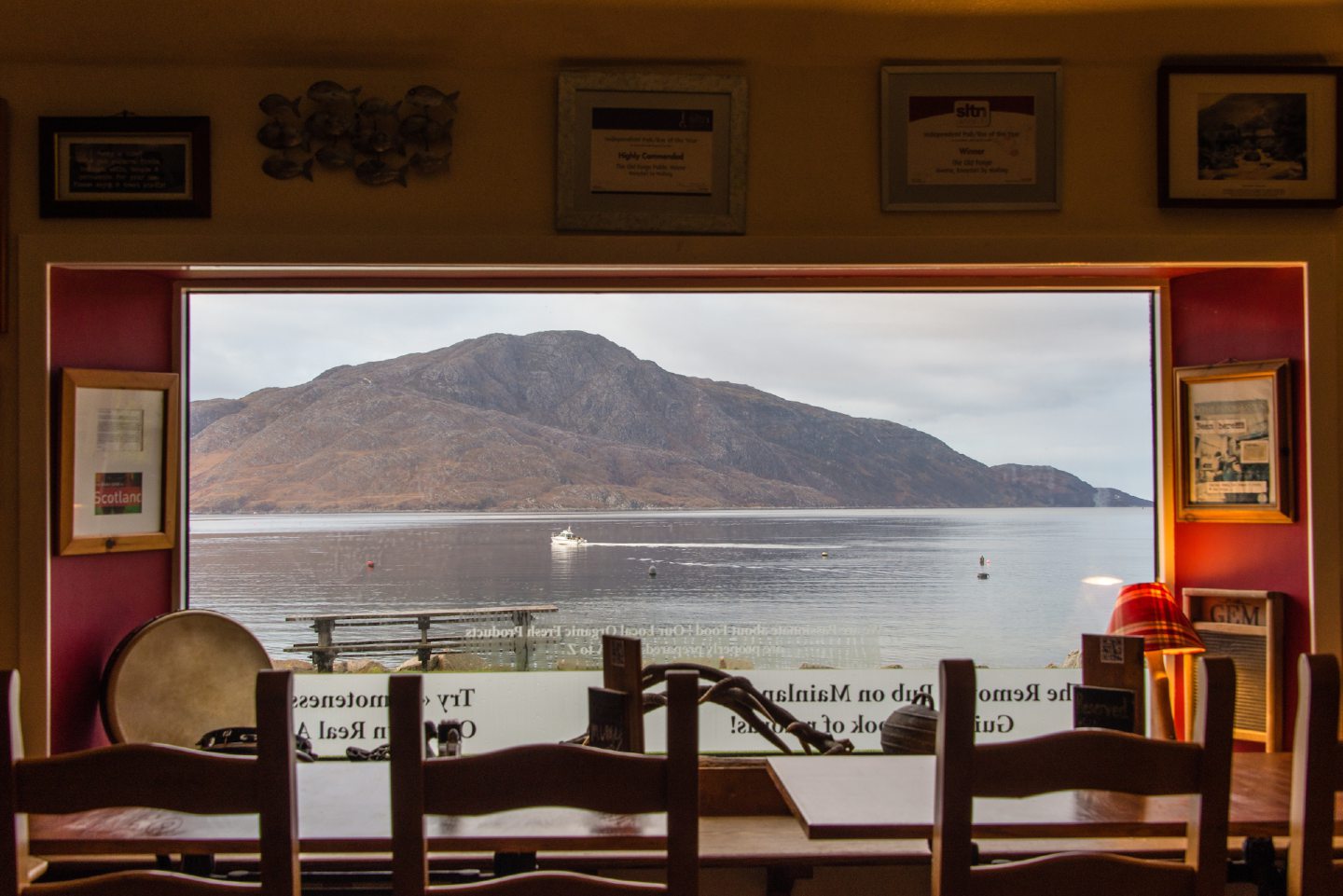As the UK Government’s autumn statement approaches, Iain Maciver considers taxes, death and quite a lot more in-between.
Well done to Chancellor Jeremy Hunt for coming up with his new fiscal strategy to get the country back on its feet.
You haven’t heard of it? Having announced that everyone is going to have to pay more tax of one kind or another, he has come up with a new simplified tax return form. It will have only four sections to it. Number one asks: what was your income for the year? Two is: what were your energy expenses? Three is: how much have you left? And the last just says: “Send it in.”
November 17 is the mini-budget, called the autumn statement. It used to be merely a chance for the chancellor to confirm smaller items of interest to the nation. For instance, in 2015, Chancellor George Osborne made a statement riddled with jokes taking the mickey out of Labour.

He then went on to confirm that the UK would have a permanent pothole fund. Really? That one must be underspent, surely?
I have not spent enough time studying Benjamin Franklin, the best president the United States never had. A statesman and ambassador, he became an expert on taxation, among other things.
He said: “Our new Constitution is now established and has an appearance that promises permanency, but in this world nothing can be said to be certain, except death and taxes.” Ooh, that’s deep. Ben had a point, though.
What’s the difference between death and taxes?
There’s another point to all this. If they are both inevitable, what is the actual difference between death and taxes? Well, the Cabinet doesn’t meet every year to make death worse.
Accountants claim they can make things better for taxpayers by sorting out piles of receipts, finding things you can claim against tax, making sense of your life on paper, and then submitting your returns. What a job.
How can accountants be interested in adding up other people’s taxes? It is so boring, as are they. I can say that because a friend of mine called Michael is an accountant. He admits he and his adding-up colleagues are not the most exciting fellows.
For a while, Mike was in a band, The Calculators, with other accountants. I asked what was the most outrageous thing The Calculators had done when they were on their one and only tour. He couldn’t think of anything.
I am beginning to think their idea of trashing a hotel room would be to refuse to fill out the guest comment card. Outrageous.
If you are self-employed, have a business, a lot of time and cash, and feel like bending the rules, I am told you can put your money abroad in tax havens, which even Rishi can’t reach. That would be a faff for me, even if I do get that long-overdue pay rise from The Press and Journal.
However, I have heard of someone who is using an offshore tax company to minimise what he pays on his 1980s music business. It’s a Seychelles sanctuary. OK, you may need a minute to think about that one, unless you were a fan of The Cult.
I’m running away to Knoydart
The other option is to go and live in Knoydart. I know there are no roads to it and it’s a two-day walk over the hills. Or, you can take a wee ride on the ferry from Mallaig. Hmm, which would I go for?
Before you marry someone, you should first let them use a computer with slow broadband. Then you will see who they really are.
If you can get there, there are many advantages. Cheap energy is a good one. The power comes from Loch Bhraomisaig up the hill. It powers a turbine, which powers a post office, primary school and private homes. And there’s a brewery. And a pub. Two days of walking wouldn’t be so bad with that at the end of it.
Wait, wait, wait. Is there broadband in Knoydart? Actually, they have superfast broadband. Thank goodness for that. Before you marry someone, you should first let them use a computer with slow broadband. Then you will see who they really are.
You also see who people really are when they do their income tax return. HMRC now encourages taxpayers to communicate with them about any difficult circumstances they are in. They then pledge to do reviews, consider giving more time to pay, and so on. That’s nice of them, isn’t it?
A certain gentleman on Skye called George, which may or may not be his right name, took advantage of that offer a week after he sent in his tax return last January.
His neighbour tells me George wrote to HMRC saying something along the lines of: “I am unable to sleep because of the guilt I feel for cheating on my tax return. I have underreported my income in the last year, so I’m enclosing a cheque for £2,000. If I still can’t sleep, I will send the rest.”
Iain Maciver is a former broadcaster and news reporter from the Outer Hebrides



Conversation